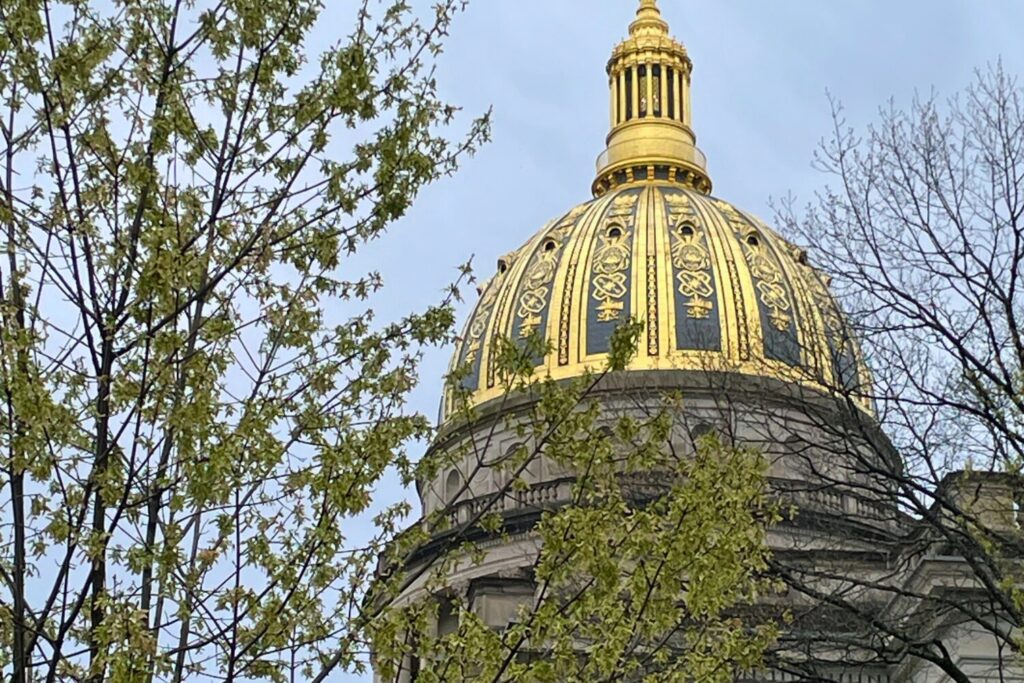- Like
- Digg
- Del
- Tumblr
- VKontakte
- Buffer
- Love This
- Odnoklassniki
- Meneame
- Blogger
- Amazon
- Yahoo Mail
- Gmail
- AOL
- Newsvine
- HackerNews
- Evernote
- MySpace
- Mail.ru
- Viadeo
- Line
- Comments
- Yummly
- SMS
- Viber
- Telegram
- Subscribe
- Skype
- Facebook Messenger
- Kakao
- LiveJournal
- Yammer
- Edgar
- Fintel
- Mix
- Instapaper
- Copy Link

For immediate release February 1, 2023
Contact:
Ron Allen, 304.276.3507, silverkar@zoho.com
John A. Bolt, 304.382.4707, jboltwv@gmail.com
Most West Virginians oppose “Culture War” bills, many young adults consider leaving
CHARLESTON, W.Va. – A recent scientific poll indicates young West Virginians are unhappy with the Legislature’s focus on divisive social issues to the point that a majority would at least consider leaving the state if the restrictive bills are passed and the trend continues.
“This validates what we and others have been saying for two years: that the legislature’s focus on such divisive topics as telling teachers how to teach about racial discrimination are damaging the ability of our already struggling state to retain or recruit population or a viable work force,” said John A. Bolt, co-president of West Virginia Coalition for Truth in History.
“Further, not only do most West Virginians oppose those type of initiatives, but they also want lawmakers to stay out of their private lives,” Bolt said.
A whopping 91 percent of respondents agreed that “government should focus on lifting people up and improving opportunities for everyone and not on telling people what they can and cannot do in their own lives.” Only 7 percent disagreed.
Among the poll’s findings:
- 70 percent of voters between the ages of 18 and 34 oppose banning teaching critical race theory in schools. This has been a focus of many in the legislature since the 2022 session, despite no credible evidence it is being taught in K-12. Overall, 54 percent of voters opposed such a ban.
- 50 percent of that age group say they could see themselves leaving West Virginia within five years, with only 25 percent saying they definitely would not consider it.
- The top two reasons for leaving? Better jobs elsewhere, 84 percent; concern about the direction of the state’s politics, 60 percent.
- 52 percent of voters aged 18-34 said they would be much or somewhat more motivated to leave if high school teachers were prohibited from teaching about past and current racism in the United States.
Almost three-quarters (71 percent) of respondents identify as conservative or moderate; 39 percent identify as Republican; 23 percent, Democrat; 39 percent, independent or leaning to the GOP or Democrats.
During the 2022 legislative session several bills sought to curtail what multiple legislators claimed was being taught and was effectively resulting in some students feeling guilty or discomfort about their race.
Even though a watered down bill eventually was approved by the Legislature, the final vote came just seconds after the constitutionally mandated midnight adjournment on the session’s 60th day so it failed to pass.
Similar bills were reintroduced this session and are now under consideration in the House of Delegates.
In addition to bills attacking CRT, legislators have also gone after diversity training, transgender rights and other culture wars issues.
More than three-fourths of respondents, 76 percent, said they are concerned to varying degrees that legislators are spending too much time and attention on divisive social issues like abortion, school prayer, critical race theory, gay marriage, and the like.
The poll of 1,941 voters, with an oversampling of young voters, was conducted last fall by Change Research using online polling through social media recruitment and text to web techniques, which are also used by the Pew Research Center as research suggests people may be more truthful to a survey on a screen than with a live call.
The poll, which has a margin of error of 2.6 percent, was commissioned by West Virginia Strong, a not-for-profit organization that supports efforts to fight political extremism. It was released Wednesday by the West Virginia Coalition for Truth in History, a statewide group of mostly individuals who support teaching all aspects of history to ensure critical thinking skills for the future. The Coalition formed in January 2022 in a grassroots movement that brought together individuals as well as social justice advocates concerned about the anti-CRT bills being proposed.
–30–
WV COALITION FOR TRUTH IN HISTORY STATEMENT ON SB130 AND SIMILAR LEGISLATION
West Virginia’s state legislature is considering legislation – for the second straight session – that would:
- Harm educators by causing them to fear losing their job for teaching the truth.
- Harm our economy by suggesting to businesses looking to locate here that WV is not a place open to diverse workforce.
- Harm our families by creating an environment that will drive young people from the state.
Why would the Legislature do such a thing? Because lawmakers care more about scoring points in the national partisan political game than doing the hard work of improving the lives of our citizens.
As was testified to in Monday’s House Education Committee on SB130, the misnamed Anti-Racism Act, neither the State Board of Education nor the American Federation of Teachers or West Virginia Education Association have any record or documentation that these issues are being taught. The only proof offered in Monday’s committee discussion was “see me later and I’ll show you some things.” But no public proof.
Del. Sean Hornbuckle (D-Cabell) hit the nail on the head during an otherwise perfunctory discussion in committee, calling the bill “red meat,” met to stir up political bases and increase campaign contributions.
He suggested proponents are being intellectually dishonest by labeling the bill the “Anti-Racism Act,” and implored his colleagues to “get away from the political and do the people’s work.”
(It was telling that Hornbuckle’s proposed amendment adding religion to the list that students can’t be taught to hate, or is superior – not that they are now – was soundly defeated.)
This focus on so-called culture war issues, which include things like abortion and LGBTQIA+ rights, will further erode the state’s ability to draw new people or keep those who are still here.
A poll commissioned by West Virginia Strong validates what we and others have been saying for two years: that the legislature’s focus on things such as divisive topics such as telling teachers how to teach about racial discrimination are damaging the ability of the already struggling state to retain or recruit population or a viable workforce.
Further, not only do most West Virginians oppose those types of initiatives, but they also want lawmakers to stay out of their private lives and focus instead on lifting up people and improving opportunities.
A parliamentary rule stopped the plan last session, but it’s back this year in several bills introduced on the first day, with SB130 – “the Anti-Racism Act of 2023” – apparently the chosen vehicle.
The sad part is that this activity is not coming from West Virginians, but from national advocacy organizations, such as the Pacific Legal Foundation, funded by extremely conservative, wealthy individuals.
While SB130, without further amendment, is less damaging that it might have been. Its impreciseness and lack of definition opens educators up to harassment and false accusations. For example, it’s easy to imagine that parents or students could interpret or misconstrue teaching of past, factual racist laws or events the same as compelling agreement. Actually, that has already happened in Jefferson County where a lesson on redlining and how it created advantages for whites and disadvantages for blacks was interpreted as teaching that whites have an “inherent advantage because of their skin color.” It is true that whites have advantage, but it has nothing to do with skin color, it has to do with discriminatory laws.
This bill will do nothing to improve West Virginia schools, but will only further label the state as inhospitable to anyone who is not white or Christian.
It is sad that the best we can probably hope for is that this legislation not be made worse on its journey through the legislature.
###



